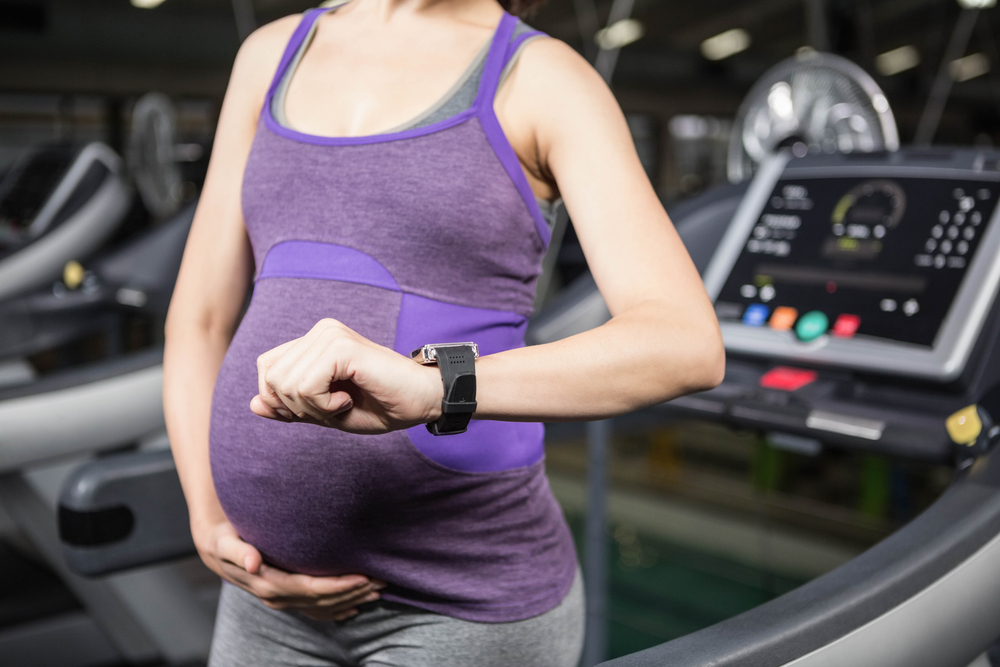
When you are pregnant, your running goals might seem far away and completely unattainable. Many pregnant runners wonder if they should refrain from running or just run while pregnant. We’ve done some research and came up with the following check-list for running women.
What are the benefits of running during pregnancy?
By now, we all know that running is considered a quick and effective way to work on both your physical and mental state. Further to that, it’s an affordable sport and running during pregnancy easily fits into your schedule.
Nevertheless, running or jogging while pregnant is not supposed to be taken up for the sake of starting a running routine, nor to train for a marathon. Keep the following things in mind:
- If you consider running during pregnancy, consider seeing a physical therapist beforehand, in order to find out if you are allowed to run, but also so that you learn more about your body. Take into consideration your pelvic floor health and ask your doctor in what manner running during pregnancy could affect your baby’s health.
- Don’t forget to dress accordingly while running during pregnancy. Wear shoes that are comfortable and support your ankles and arches. Choose a good sports bra which supports your growing breasts.
- Just like always, hydration is the golden rule. Drink lots of water before, during, and after your run while pregnant. Hydration helps you avoid the blood flowing to the uterus which could result in premature contractions.
- It is recommended to run on a track rather than on pavement, both because it’s easier on your joints and knees, and also in case you fall. If you do fall, do your best to fall either on your side or on your behind in order to avoid trauma to your abdomen.
- Always avoid running during pregnancy if you don’t feel right. Respect your baby, but don’t forget to respect your body as well. Otherwise, you might risk a negative aftermath of running during the pregnancy once you’ve given birth to your baby.
- By now, you’ve realized that running is something that can be done during pregnancy but at a much different pace. That’s why it’s important to focus on the rhythm when jogging during pregnancy. According to the expert advice in the Baby Center Magazine, the first trimester is when the baby’s major organs are forming. That’s why overheating is a real issue. If a woman’s core temperature gets too high, it could cause problems with the baby, so why risk it?
- Sometimes we tend to forget how abusive we are with our abdominal muscles. That is why training for this should also be considered when running during pregnancy. Pelvic twinges are a regular issue. But you’ll also get to have lots of massive pelvic floor issues postpartum. That’s why it’s highly recommendable to do lots of pelvic specific exercises before, during but also after pregnancy.
- During pregnancy, your joints loosen, which makes you more prone to injury. That’s why when too much running during pregnancy is risky for your health, you can maybe conjure some endorphins through positive thinking and longer walks. Alternate running with other types of exercise. Try strengthening exercises, kegel and other pelvic floor targeted moves. Very popular among pregnant women is Yoga Pilates. The richer the variety of exercises, the healthier it is for your body.
- While pregnant, don’t run to the point that you feel exhausted. Stop running or jogging during pregnancy immediately in case you have one of the following warning signs: vaginal bleeding, difficult breathing, dizziness, headache, chest pain, muscle weakness, calf pain or swelling, contractions, decreased fetal movement or fluid leaking from your vagina. On the other hand, don’t panic! You’ll find out that many of the pregnant runners out there experience such difficulties. For example, we’ve found out that leaking issues are a common issue on the forum RunFarGirl. Members here consider the solution is sometimes to wear a tampon when you are running while pregnant, which can close off the urethra from the other side. Another solution is to buy a device called pessary that you can wear whenever you need it and which can essentially hold your bladder in the correct position. Nevertheless, before experimenting with any new products when running during pregnancy, consult your gynecologist.
- Last, but not least, remind yourself that you don’t have to prove anything to anybody. It would be good to take the pregnancy period as a time-off from running and an opportunity to feel empowered, rather than pitying yourself for being a lazy bump and putting your baby’s health and yours at risk.